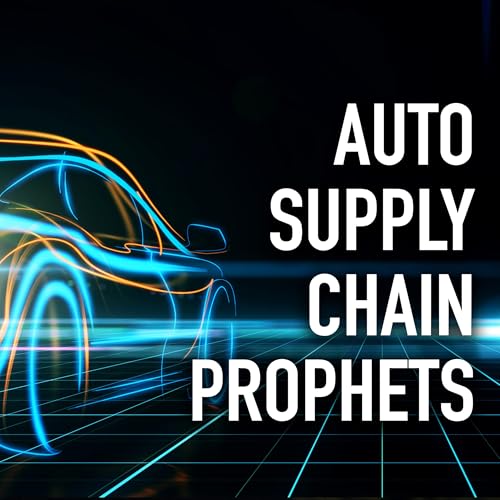At the heart of The Prophets’ vision are “The 24 Essential Supply Chain Processes.” What are they? Find out, and see the future yourself. Click here
In this episode of Auto Supply Chain Prophets, hosts Terry Onica and Jan Griffiths sat down with Alan Shevela, Global VP of Supply Chain and Quality at Aludyne, to talk about the company's push to innovate and how they're breaking new ground with digitization in the die-casting industry—all while keeping a strong focus on people.
Alan talks through the three challenges he's facing: developing people, embracing digitization, and building strong partnerships. With a hands-on leadership style, he's all about making sure everyone on the team feels connected to the bigger picture. For Alan, success comes down to one thing—building people-first teams that focus on the same goal.
Aludyne's project to streamline indirect spending has been a game-changer, helping them tighten operations across global sites. By letting the data do the talking and focusing on quick wins, Alan shares how they got the buy-in from the C-suite to drive their digitization efforts forward. It's not just about throwing tech at a problem—it's about showing the impact and making things happen.
Regarding supplier partnerships, transparency is the name of the game. Alan believes in keeping the lines of communication open, even when the news isn't what people want to hear. This approach has helped him build strong, resilient relationships that can weather the industry's inevitable disruptions.
When asked for one piece of advice for supply chain leaders facing industry transformation, Alan's advice is clear: Every interaction should aim to leave a positive impact, no matter how tough the situation gets.
Tune in to listen to Alan's insights on balancing the human side of leadership with the drive for digitization in the evolving automotive industry
Themes discussed in this episode:
- Focusing on nurturing and advancing team members to drive overall success and adapt to industry changes
- How digitization initiatives will lead to measurable returns on investment, highlighting cost savings and efficiency gains
- Strategies to effectively manage and reduce indirect costs, which often go unnoticed but can significantly impact the bottom line
- Identifying and addressing the most pressing issues in procurement and supply chain management to drive meaningful improvements
- Leading the charge in adopting innovative practices and technologies to enhance operational effectiveness and achieve long-term business goals
- Alan's approach to building and maintaining strong relationships with suppliers, focusing on constant communication and collaboration
- The importance of maintaining a constructive attitude and making a positive impact in all professional interactions, regardless of challenges.
Featured on this episode:
Name: Alan Shevela
Title: Vice President, Global Supply Chain and Quality at Aludyne
About: Alan Shevela brings over 27 years of expertise in global procurement and supply chain management. Since 2020, he has led Aludyne's Global Supply Chain Operations, overseeing global procurement, direct and indirect material purchasing, capital equipment, tooling, trade compliance, and logistics. Aludyne, a global leader in aluminum knuckles and critical chassis components for the automotive industry, benefits from Alan’s strategic leadership.
Alan's academic background includes an MBA with a concentration in Supply Chain from Michigan State University and a BBA from Western Michigan University, which have been the...
 Nov 18 202422 mins
Nov 18 202422 mins Nov 4 20242 mins
Nov 4 20242 mins 22 mins
22 mins 24 mins
24 mins 23 mins
23 mins 26 mins
26 mins 35 mins
35 mins Aug 12 20243 mins
Aug 12 20243 mins
